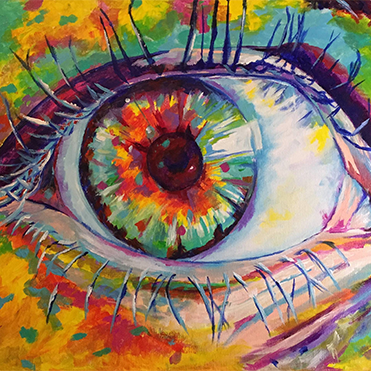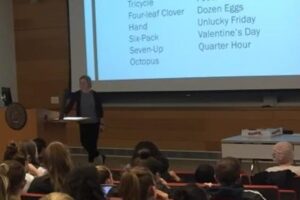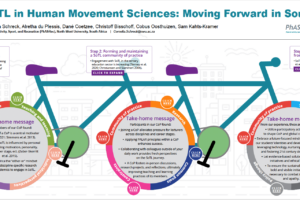
SoTL in South Africa: Emergence, Evolution, Possibilities
By Xena Cupido1, Kibashni Naidoo2, Nalini Chitanand3, Jo-Anne Vorster4
1Cape Peninsula University of Technology
2University of Johannesburg
3Durban University of Technology
4Rhodes University
Emergence and growth
South Africa has a rich history with the Scholarship of Teaching and Learning (SoTL), ranging from individual institutional programmes, national conferences and international collaborative programmes which emphasise the development of SoTL to strengthen teaching in higher education. Scott (2009) reflected on the significant benefits of SoTL for the development of higher education in sub-Saharan Africa, recognising the potential to influence policy, reform curriculum development and practices. Leibowitz and Bozalek (2010) drew attention to the implications of SoTL for professional learning while addressing social injustices.
Over the past two decades, SoTL in South Africa experienced several challenges stemming from a lack of clarity of its meaning and relevance as a field of research, calling for greater engagement and dialogue within the academic community (Pitso, 2013). Two important responses emerged in the South African higher education landscape to address these challenges. First, South African higher education institutions began hosting SoTL conferences, which fostered a sense of community and collaboration. Second, the SoTL in the South conference and journal emerged, with a particular focus and commitment to the scholarship of teaching and learning in the global south (https://www.sotl-south-journal.net/index.php/sotls). The inaugural issue of the SoTL in the South journal was launched in 2017 leading from the first SoTL in the South conference that was held in July 2017. Leibowitz (2017) highlighted the need for a more focused approach to the meaning of SoTL from the global South, challenging the dominance of global perspectives and recognising the importance of institutional contexts. Arguing at the time, that the “geopolitics of knowledge is being opened up for questioning, but there is continual deference to the globally renowned, and scant attention is given to institutional contexts and what these contexts mean for scholarship and for teaching and learning.” (p.1) The adoption of SoTL in South Africa is significantly influenced by the nation’s distinctive historical and socio-political milieu:
Post-apartheid Transition (1994-2000s): The end of apartheid ushered in a period of rigorous educational reform in South Africa, focusing on curriculum standardisation and institutional mergers (Badat, 2009). SoTL emerged as a vital tool for educators to adapt and elevate the post-apartheid teaching environment (Boughey, 2007).
Integration and Growth (2000s-2020s): As stability returned to the higher education sector, the impetus for professional development in teaching grew. Institutions began to establish centers for teaching and learning, integrating South African educators with the global SoTL community (Quinn, 2012), and which provided resources and support for SoTL research and development. Engagement in SoTL was recognised by the Department of Higher Education and Training (DHET) as a key strategy for enhancing teaching, as evident in the National Framework for Enhancing Academics as University Teachers (DHET, 2018).
Current Status
The increasing prominence of SoTL is evident from its integration into academic missions, availability of dedicated funding, and the rise of academic journals focusing on it (Leibowitz & Bozalek, 2010). A recent National project of academic development has reported that at least 16 of the 26 public universities in South Africa offer SoTL as part of their professional development opportunities, this includes short learning programmes on SoTL. Despite the traction SoTL has gained, challenges persist, including historical imbalances, resource constraints and the occasional perception of SoTL as less important than traditional research (Bitzer, 2010).
Future Trends
The digital revolution, accelerated by the COVID-19 pandemic, is reshaping SoTL’s direction in South Africa (Czerniewicz & Brown, 2009). The confluence of technology, artificial intelligence with teaching and learning is a burgeoning area of interest and critical engagement.
Conclusion
From confronting apartheid-era challenges to navigating contemporary issues, South Africa’s engagement with SoTL reflects its enduring commitment to educational enhancement. As the global SoTL landscape evolves, South Africa’s unique contributions will undoubtedly enrich the global discourse (Jawitz, 2009).
References
Bitzer, E. (2010). Scholarship in higher education in South Africa: The need for a historical and an ecological approach. South African Journal of Higher Education, 24(5), 634-650.
Boughey, C. (2007). Educational development in South Africa: From social reproduction to capitalist expansion? Higher Education Policy, 20(1), 5-18
Czerniewicz, L., & Brown, C. (2009). A study of the relationship between institutional policy, organisational culture and e-learning use in four South African universities. Computers & Education, 53(1), 121-131.
Department of Higher Education and Training (DHET) (2018) A National Framework for Enhancing Academics as University Teachers, Pretoria: DHET
Hutchings, P., & Shulman, L. S. (1999). The scholarship of teaching: New elaborations, new developments. Change: The magazine of higher learning, 31(5), 10-15.
Jansen, J. (2004). Autobiography and the politics of race in South Africa. Pretoria: HSRC Press. Badat, S. (2009). Theorising institutional change: Post‐1994 South African higher education. Studies in Higher Education, 34(4), 455-467.
Jawitz, J. (2009). Learning in the academic workplace: The harmonization of the collective and the individual habitus. Studies in Higher Education, 34(6), 601-614.
Leibowitz, B., & Bozalek, V. (2010). The scholarship of teaching in South Africa: Context, impact and the role of discourse. Higher Education, 60(5), 585-599.
Pitso, T. (2013). Status of the scholarship of teaching and learning in South African universities. South African Journal of Higher Education, 27(1), 196-208.
Quinn, L. (2012). Understanding resistance: An analysis of discourses in academic staff development. Studies in Higher Education, 37(1), 69-83.
Scott, I. (2009) Towards an Agenda for SoTL in Africa?, International Journal for the Scholarship of Teaching and Learning: Vol. 3: No. 1, Article 3. Available at: https://doi.org/10.20429/ijsotl.2009.030103




